How Do You Keep Faith Alive When Your Child Remains Ill?

Bless the Lord, O my soul, and forget not all his benefits, who forgives all your iniquity, who heals all your diseases.
Psalm 103:2-3

When my son Ivan was born, I quickly learned that our journey would be unlike any I had imagined. Ivan was diagnosed with Leber’s Congenital Amaurosis, an inherited retinal disease that causes congenital blindness, and Joubert Syndrome, a neurological disorder affecting his brain and motor functions. Over time, his health challenges expanded to include severe refractory epilepsy, scoliosis, chronic upper airway congestion, and oropharyngeal dysphagia, among others. He is completely blind, non-verbal, non-ambulatory, and has extremely low muscle tone. His condition requires 24/7 care and regular visits to a multitude of specialists.
I understand the emotional toll of chronic illness, but I also believe in the power of faith and community to uplift and sustain us. Our family was not always religious, but we recently found faith and were confirmed in the Catholic Church this past Easter. Since then, I have learned to trust in the power of prayer and have sought comfort in the sacraments. Devotion to the Blessed Mother has also become a source of immense comfort as I seek her intercession and draw strength from her example of unwavering faith. Though Ivan’s medical condition has not improved, our prayers and faith have provided us with solace, resilience, and a deeper sense of purpose.
Relying on Prayer in Times of Illness

Prayer is a profound and intimate communication with God. It’s a way to seek divine intervention, express gratitude, and find comfort in times of distress. Jesus promises that faith, even as small as a mustard seed, can move mountains (Matthew 17:20). However, prayer is not just about asking for miracles, but also about aligning oneself with God’s will and finding peace in His presence.
The power of prayer lies in its ability to transform hearts and minds, providing a sense of peace and acceptance even through our darkest days. Prayer can give you the strength to endure life’s trials and find peace:
Have no anxiety about anything, but in everything by prayer and supplication with thanksgiving let your requests be made known to God. And the peace of God, which passes all understanding, will keep your hearts and your minds in Christ Jesus.
Philippians 4:6-7
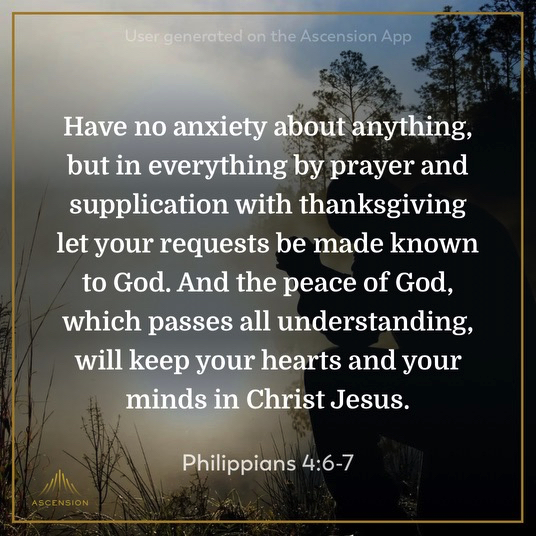
In essence, prayer is the cornerstone of faith, offering hope and resilience to those navigating the challenges of chronic illness. This prayer has brought me much peace on difficult days:
O Lord God, I come to You for help and succor.
You have afflicted my child.
Help me to understand that You mean well.
Give me grace to bear my child’s affliction with patience and strength.
Bless me, O Father, and restore my child to health.
Do not forsake us, but give us an assurance of Your loving Kingdom.
Bless this illness to me and my child, and help us both to be better children of Yours because of it.
In the name of Your Holy Son Jesus Christ. Amen.
Our Experience Attending a Healing Service
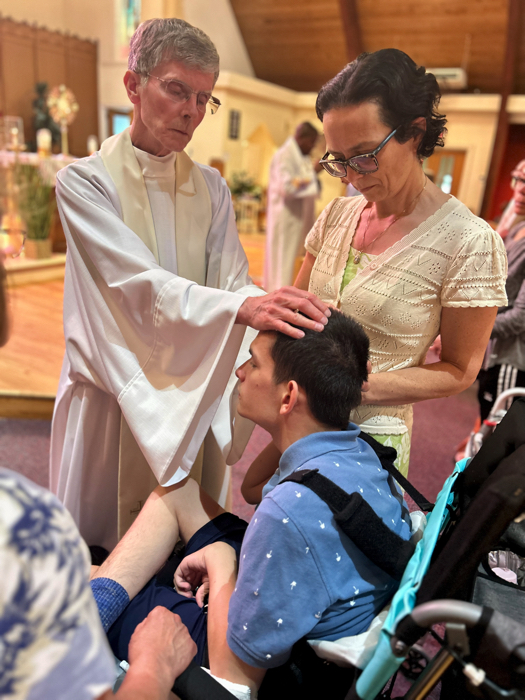
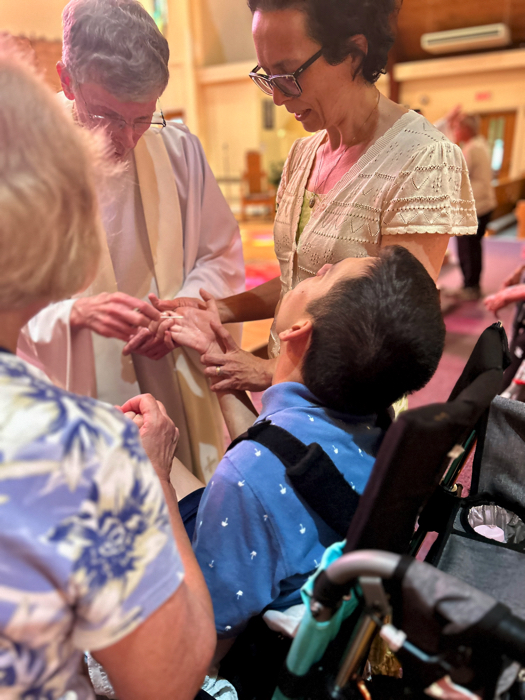
A few weeks ago, we took Ivan to a healing service at the Lazarus Center, where he was anointed with oils and prayed over. At the Center, we were surrounded by many people of great faith, and we were accompanied by friends who were there to support us. It was not an individual experience, but a communal one, filled with a deep sense of connection and shared purpose.
The healing service concluded with the Anointing of the Sick, which offers spiritual and, if God wills, physical healing. It provides spiritual strength, peace, and courage to endure the sufferings associated with illness or to care for someone who is chronically ill.
James describes the anointing of the sick in his letter:
Is anyone among you sick? Let them call the elders of the church to pray over them and anoint them with oil in the name of the Lord. And the prayer offered in faith will make the sick person well; the Lord will raise them up. If they have sinned, they will be forgiven. Therefore, confess your sins to one another, and pray for one another so that you may be healed. The effective prayer of a righteous man can accomplish much.
James 5:14-16
James’ description highlights that this sacrament involves the entire community. During Ivan’s healing service, we felt a connection with God’s love and a powerful reminder that we are not alone. Whether or not it leads to physical recovery it did give me the emotional strength to continue on. The true healing we received was the emotional and spiritual fortitude to face our journey with faith and courage, knowing we are supported by our church community and the grace of God.
How to Be Miraculous Without a Miracle
The question of unanswered prayers is challenging. If I have faith, why doesn’t God take this pain from me? Why would He allow an innocent child to experience pain and illness? When grappling with difficult questions like these, I often turn to Father Mike Schmitz. In a recent Sunday Homily, he addressed the issue of unanswered prayer:
In this homily, Father Mike presents us with two stories of men who both have great faith and great pain. One is healed, and one isn’t, even though both have thoroughly given their lives to Jesus. Father Mike asks a poignant question: “Do we really believe that God can be glorified by both a miraculous healing and by the person who is not healed?”
Saint Paul seems to think so:
And to keep me from being too elated by the abundance of revelations, a thorn was given me in the flesh, a messenger of Satan, to harass me, to keep me from being too elated. Three times I begged the Lord about this, that it should leave me; but he said to me, “My grace is sufficient for you, for my power is made perfect in weakness.” I will all the more gladly boast of my weaknesses, that the power of Christ may rest upon me. For the sake of Christ, then, I am content with weaknesses, insults, hardships, persecutions, and calamities; for when I am weak, then I am strong.
2 Corinthians 12:7-10
It’s easy to think that if we are healed we could be such a great example of faith to the world. We might say, “Lord, if you take this pain away from my child, I will tell everyone. If you just fix my child, I will never stop glorifying your name. But until this healing happens, I won’t be able to glorify you.”
But God says, “My grace is sufficient for you.” He is saying that whatever He gives you, that’s enough. Even if it’s just enough to make it through one more day, it’s enough.
When He says, “My power is made perfect in weakness,” God reveals that He is glorified even when He doesn’t provide healing. If you can continue to say, “Jesus, I trust in you,” despite pain and illness, your faith becomes a powerful testament to God’s grace. This scene from The Chosen, where Jesus explains to the apostle James why he has not been healed, reflects this same idea:
Father Mike says, “You don’t have to wait to be healed to be holy. You don’t have to be restored to be a saint. You don’t have to wait for God to do the miraculous thing to be a miracle.”
You might think, “Yeah, well, I’d rather have a healthy child than be a holy saint.” But that’s not the ultimate purpose of life. The point of life is to glorify God and reflect the light of Jesus. Healing is not a prerequisite for glorifying God; you can shine His light even in the midst of weakness.
This Is What It Means to Live out Christ’s Love
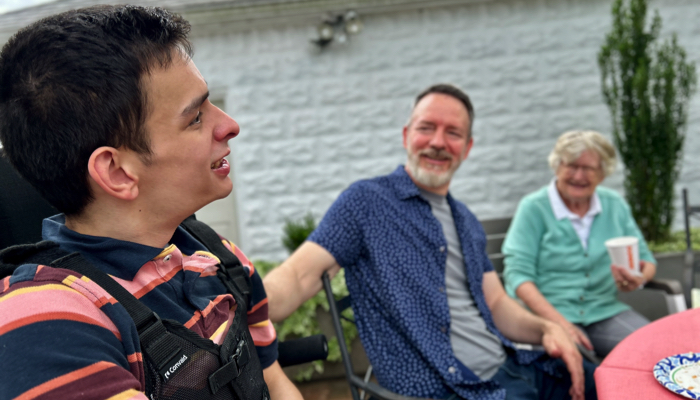
The support we’ve received from our church and faith community has been extraordinary. I attend a prayer group every Monday, and this weekly gathering has become a source of immense strength and comfort for me. The sense of solidarity and understanding I find there is irreplaceable. Knowing that others are praying for Ivan and our family gives me peace and hope.
Beyond the prayer group, the parish community has embraced us with open arms. We are often invited to people’s houses, and these gatherings have made us feel much less isolated. In these moments, sharing meals and stories, I truly feel the warmth and love of our faith community. The friendships we’ve built through these interactions constantly remind us that we are not alone in this journey.
Perhaps one of the most reassuring aspects of being part of this community is knowing that there are people who would be happy to help me and my family in a medical emergency. This network of support extends beyond spiritual care; it’s a tangible presence in our lives. I know that if we were to ever need a ride to the hospital, help with meals, or simply someone to talk to, the members of our parish will be there for us. This is what it means to live out Christ’s love. For this, I am profoundly grateful, and it reinforces my faith that we are supported by both God and a compassionate community.
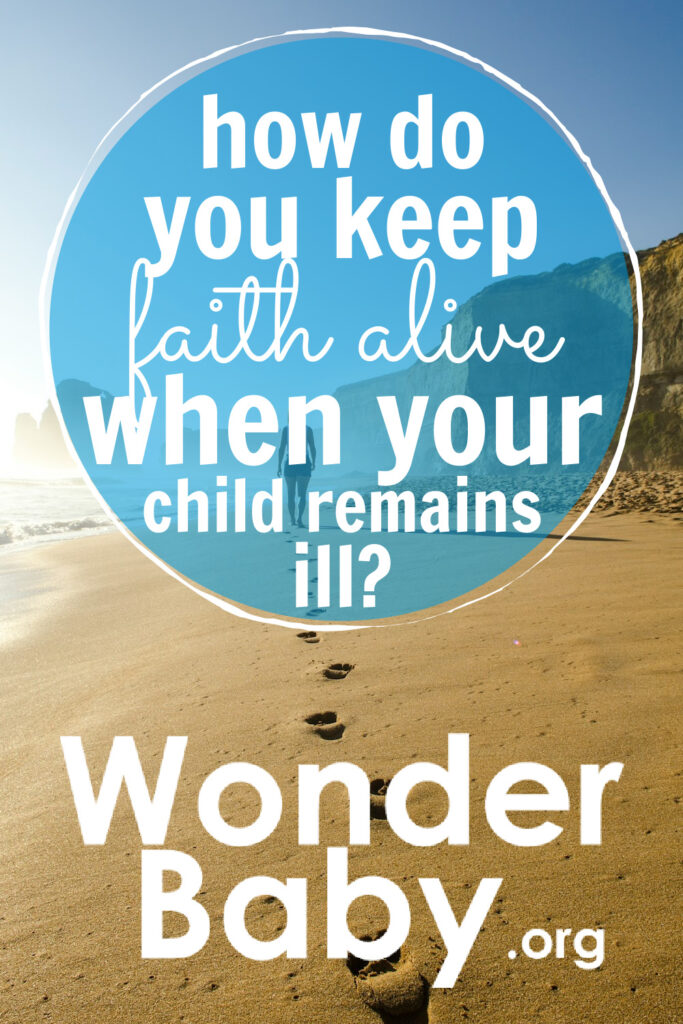
Related Posts

Eye Conditions and Syndromes, Visual Impairment
Neuralink Announces Plans to Restore Sight to the Blind with Brain Chip
Elon Musk’s company Neuralink has announced plans to begin human trials of its new “Blindsight” brain chip by the end of 2025.

Special Needs
5 Spring Cleaning Tips for Families of Children with Disabilities
Spring cleaning is an opportunity to create a more accessible, organized, and supportive space for your child with disabilities. Declutter, deep clean, and refresh!

Visual Impairment
The Gift of Understanding: How a Young Child Helps His Blind Father Navigate Life
When a parent is blind, it’s natural for people to wonder how their sighted child will adapt. Will they struggle to understand their parent’s needs? Will they feel burdened by...